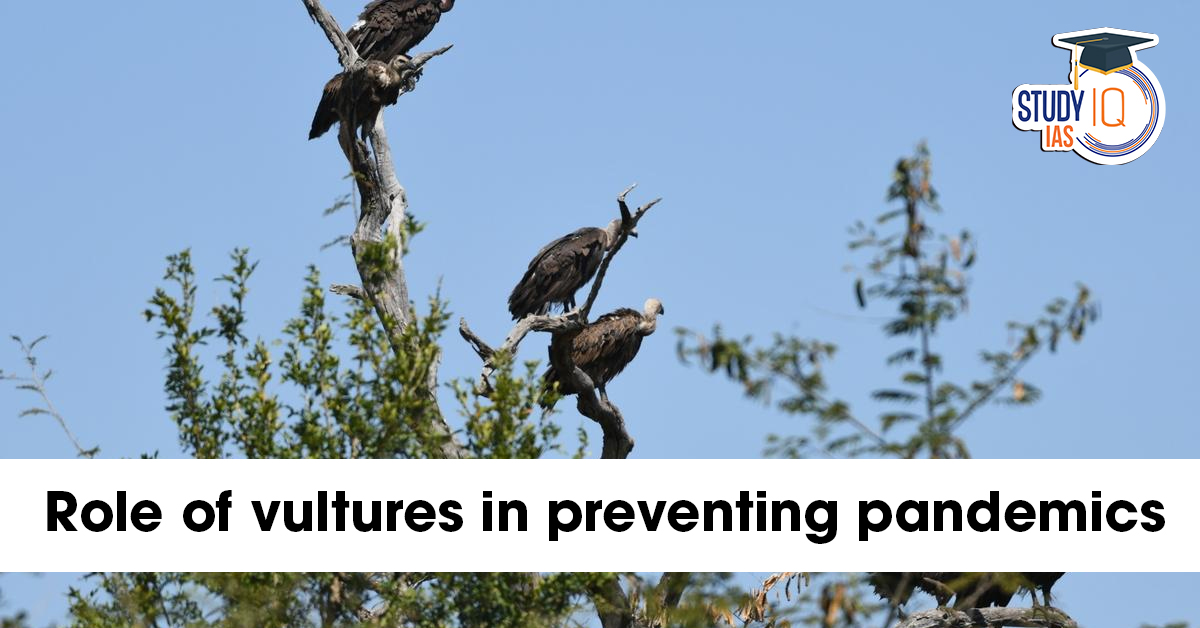Context: With India’s National Action Plan for Vulture Conservation (2016–25) nearing completion, experts argue the next phase must link vulture conservation to pandemic preparedness under a One Health framework.
Role of Vultures in Preventing Pandemics
- Natural Waste Managers: Vultures feed on animal carcasses, rapidly clearing them before pathogens (anthrax, rabies, botulism) can spread.
- Without vultures, carcasses linger, attracting feral dogs and rats that transmit diseases to humans.
- Barrier to Zoonotic Spillover: By disposing of carcasses, vultures block disease transmission between animals and humans.
- This reduces the risk of zoonotic outbreaks (diseases jumping from animals to people).
- Surveillance Role: As first responders to carcasses, vultures could be integrated into disease monitoring systems, offering early warnings of outbreaks.
- Regional Public Health Security: Migrating vultures along the Central Asian Flyway connect ecosystems across more than 30 countries.
- Protecting them reduces the risks of transboundary diseases, thereby strengthening regional pandemic preparedness.
- Cost-effective Prevention: Investing in vulture conservation (safe veterinary drugs, telemetry, community stewardship) is far cheaper than responding to a pandemic.


 World Wetlands Day 2026: Theme, History,...
World Wetlands Day 2026: Theme, History,...
 Geological Heritage Sites of India: Sign...
Geological Heritage Sites of India: Sign...
 Wildlife Sanctuaries of India 2026: List...
Wildlife Sanctuaries of India 2026: List...




















